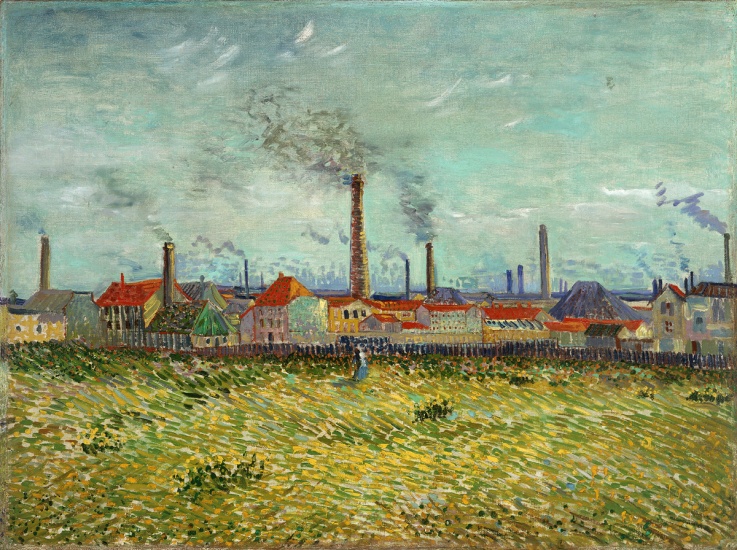This month, Liz Voeller and Chelsea Slaven-Davis are hosting a three-part writing workshop on “industrial fiction.” In particular, they intend to focus on low carbon concrete and cement. If you are a writer, you might think of this workshop in a couple of ways:
- A challenge to address technical subject matter in writing—with the support of hosts and fellow writers in the workshop to offer feedback and other insights to aid your growth.
- A foundation for understanding how to inspire more progress in science and technology, addressing pressing issues through fiction.
To better understand this category of industrial fiction, I read over an example supplied by the hosts: “Feed the Earth” by Cixin Liu (translated by Joel Martinsen).
As the story starts, the narrator’s father is dying:
Bit by bit, through twenty-five years in the mine, his father had inhaled the goal dust that made up those chunks, a tiny part of a lifetime’s worth of coal.
Such recognition is popular online in terms of material such as microplastics, but this story immediately makes us face the way in which our physical existence is shaped by that around which we live and work, and so some people take on the damage of things like coal dust much more than others. Later, we see a blowout at an oil rig:
High up on the rig they saw the body of the drill diver, suspended and twisting slowly in the roiling steam. There was no trace of the other three engineers…
On one level, this workplace tragedy is a point of narrative conflict, a dramatic moment complicating the story and driving reader interest. What the framework of “industrial fiction” adds is a sense of what such a story makes us consciously aware. Energy and resource acquisition comes at a human cost—whether through explosive spectacle or the gradual impact of decades of contact. We extract from the Earth, and we also feed the Earth.
As we start to think instead about concrete, we move from the world of energy to a common building material composing the ground on which we walk and the walls in which many people live, study, work, and so on. This material permeates so much of our lives, it is a likely presence in almost any contemporary-set story, yet very unlikely to ever come up. What, however, might it look like for us to write about this? How can we write about such technical subjects? As suggested by Hal Conte on Twitter, this may be envisioning a new future or a cautionary tale; the concrete may even be the core philosophic subject of the story, or simply a striking background element.
This upcoming workshop seeks to guide writers through this challenge—both for its own specific sake, and as a great learning opportunity. Join and work with an intimate group (the workshop series is capped at a maximum of 12 participants) on 3-5 page flash fictions as you develop your craft.
Experience in the subject matter is not required, and any writing skill level is welcome!
Series Dates: All workshops 9 AM – 12 PM Pacific
- April 10
- April 17
- April 24

